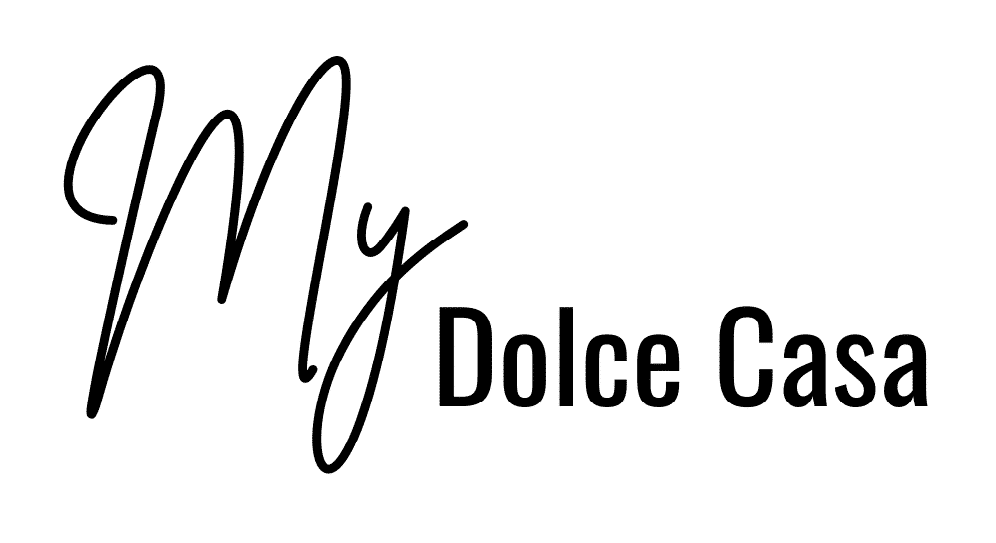Have you ever felt nervous trying to order a coffee in a foreign language? Have you been anxious about visiting a doctor who doesn’t speak your language? Unfortunately, although living in a foreign country can be great fun for so many reasons, a major drawback you could face is language anxiety.
Struggling to make others understand you or you to understand them, can leave you feeling isolated, frustrated and anxious. Language anxiety abroad occurs when expats and travellers are not fluent in the local language and it can take its toll.
Here we explain the psychological impact of language barriers. We also give practical tips on how to improve your language skills and how to deal with communication challenges living abroad.

The Psychological Impact of Language Barriers
‘Language Anxiety’ is a specific type of anxiety that arises when trying to speak a foreign language. If you cannot communicate in the local language effortlessly, you can be fearful of making mistakes and of being misunderstood. This can result in a feeling of inadequacy.
When you are surrounded by people happily chatting in the local language, you make feel totally overwhelmed and take the easier option of saying nothing and nodding your head occasionally. It can feel so stressful if you cannot make yourself understood even for simple tasks like grocery shopping.
Funny story. Many years ago, when living in Germany, I decided to be brave and buy some bread rolls for our lunch. Instead of asking for two, I asked for 20! I was too embarrassed to try and explain that I didn’t need them. As we didn’t have a freezer, I hung bags on bread rolls on our neighbors’ front doors with a note wishing them a good day!

On arriving in our new home in France a few years ago, I desperately needed my hair cutting. I carefully wrote in French how I wanted it styled and showed this with a photograph to my new hairdresser! Voila! Great success! I was really scared but the ordeal ended well!
Although I can laugh about such mishaps now, I clearly remember how foolish I felt because I could not communicate. I also felt surprisingly isolated as I so wanted to talk to people and make new friends.
Over time, my inability to communicate eroded my self confidence and contributed to feelings of inadequacy. I also began to worry that people were judging me on my inability to string even the easiest sentences together without peppering them with grammatical mistakes and mispronounced words.
Luckily, there are effective ways to tackle language anxiety abroad.
What are the Common Triggers of Language Anxiety?
The biggest trigger of language barrier anxiety is the fear of making mistakes when speaking in the local language. For many, the easiest solution is to not speak at all! This feeling is bad enough in everyday situations but can be heightened in formal settings such visits to doctors, dealing with the inevitable bureaucracy and your first work meetings with new colleagues.
Feeling that there is a language barrier as you learn the local language, can lead to both social anxiety and a feeling of isolation. You may well feel that it is going to be hard – if not impossible – to build new friendships and engaging in any new social activities will feel daunting.
The crucial first step to tackling how you feel is to recognise these emotions and to realise that language anxiety is a very common experience and does not reflect on your intelligence.
Practical Strategies for Coping with Language Barrier Anxiety
● Embrace Imperfection
This may sound strange, but too many people will not even try speaking a different language until they feel they can do so perfectly. It is far more important to focus on progress rather than trying to achieve perfection. Making mistakes is part of the learning process and most native speakers are understanding and very patient – just like you are when you meet a foreigner, unable to speak your language. In some countries – like France, locals are so polite, they would never dream of correcting you – unless you tell them to do so!
It is crucial that you set yourself achievable targets. Begin by practising ordering a meal or coffee or asking for simple directions. Once you are confident of these you can try engaging in longer and more complex sentences – but don’t try to hurry too quickly, achieving fluency does take time. Steady progress is the goal.
Build Confidence Through Practice
● Immerse yourself in your new language
The only way to build confidence is to practise. Immerse yourself in the new language. Listen to local radio stations. Watch The News presented in your language on TV – you will be amazed at how many words you begin to recognise. Try watching children’s television programs, because the vocabulary will be straightforward. Watching movies can help too. If you are feeling confident, say ‘hello’ to your local neighbors or regularly pop into the coffee shop or bakery.
• Rehearse phrases and sentences
It is good to rehearse well known phrases or sentences that you may need as this will help reduce anxiety. Try and do this every day. Learn greetings, common questions and terms of of gratitude will all boost boost confidence and preparing and practising responses to common questions such as ‘how are you?’ will definitely prove useful.
• Use a language app
A great way to practise regularly is with language learning apps like Duolingo, Babbel, or Memrise. These all offer a fun and relaxing way to practise and increase your vocabulary and teach you new phrases. A real plus is that you can progress at the speed that suits you. Allowing ten minutes every day for this along and you will feel that you are progressing.

• Practise in front of the mirror
Boost your confidence by practising how to speak your new language in front of the mirror as this will help build confidence. When you are out and about, listen to conversations and watch how locals use facial expressions and body language to emphasise what they are saying – many nationalities ‘speak with their hands’.
Learn some key phrases and survival sentences to help you. The classic one is ‘please speak slowly,’ but other good ones include ‘ I only speak a little French/ German/Greek’ and ‘please can you repeat that?’. All of these will help you to successfully navigate conversations when they get difficult.
Try and pick up some ‘filler words’ to join sentences and avoid awkward silences – for example, in French ‘donc’ is regularly said and just means ‘so….’ Be aware of any particularly hard words to remember or avoid. In Greek for example, you would think that ‘Nai’ means ‘no’ but it actually means ‘yes’ – how confusing is that!
• Improve your comprehension skills
While you take steps to improve your ability to engage in conversation in your new language, it is very important to improve your level of comprehension as this will help you to answer accurately – even though your response may be grammatically flawed. An easy way to do this is to try and watch some local TV every day.
• Join a language class to help banish language anxiety
There are many benefits from joining a formal language class and the main one is that each class is carefully structured to enhance progress. It is a good way to meet others who are facing similar challenges and for new friendships to form. It is also very reassuring to hear others struggle to repeat simple sentences and to make the same mistakes.
If you are not living within easy reach of a language class, there may well be one that you can join online, so it is worth investigating.
You may prefer to hire a language tutor for private lessons. This will certainly accelerate the learning process as your tutor will focus on areas of difficulty. It is best to not be over-ambitious though with lesson lengths, as one hour spent 1:1 is the same as two hours in a class. Again, there are usually online options available.
Be patient with yourself
It can be very easy to be self-critical when you are facing communication difficulties when living abroad. Be kind to yourself and realise that learning a language is a process that takes, time, patience and dedication.
You will come across people living in your new country who have not tried to learn the language. This is a great shame as it greatly reduces their fun of meeting local people and learning about their heritage and culture.
Most locals feel that expats who do not try and learn their language are not trying to embrace their country. They usually distance themselves. This is in sharp contrast to their reaction when meeting a foreigner trying their best to learn the language. They love it and are very encouraging and supportive in your endeavours.
Are There Psychological Techniques for Reducing Language Anxiety?
If you find yourself feeling anxious whenever you have to try speaking the new language, it can be a real help to cognitively destruct. This means challenging your negative thoughts. These can include “Everyone will laugh at me” and ‘they will not understand what I am asking’.
Replace these with positive affirmations including ‘they know I am trying my best and we can all laugh about my funny accent’. Visualising successful outcomes to conversations in your head can be a real confidence booster too.
Mindfulness and breathing exercises can help to calm nerves before conversations and practising what you want to say or having it written on a piece of paper can give you confidence. If in doubt, always have Google Translate ready on your mobile!
Navigating Communication Challenges in Everyday Life
There are definitely going to be many occasions when you cannot make yourself understood. It is important to understand this and not feel bad about it. This is part of ‘the learning curve’. If you can gently tease yourself about your language shortcomings, you will find hat this makes everyone smile! My fun ‘go to’ statement that I have learned in several languages is I am sorry, I say the right words in the wrong order – this always produces a big smile!
When you can’t find the correct words, non-verbal communication such as hand gestures and facial expressions can ‘fill the gap’. It is important to understand the style of communication used in the local culture. This includes the level of politeness and formality. For example, if you pass a person in the street in rural France you always say ‘Bonjour Monsieur/ Madam’. Having this knowledge will definitely help you avoid saying ‘the wrong thing’.
Overcoming Long Term Language Anxiety
As your competence in your new language grows, your anxiety levels should ease. To ensure that this happens, set yourself long-term, achievable goals for your language proficiency. It is important to remember that gaining fluency is a marathon rather than a sprint. Learning a ne take several years to achieve – proving you are patient and you consistently practice.
It is amazing how quickly you can lose your new language skills after just a few weeks. Even when you are away on holiday, keep practising in front of the bathroom mirror!
With time and effort you will improve your language skills and will definitely feel more comfortable and confident. If you feel that there is a language barrier, understand that it is a natural stage many experience. Be kind to yourself. Focus on your progress, rather than striving for perfection and remember that mistakes are a natural part of learning.
Most important of all, do try and keep your sense of humour when things go awry. Local people will appreciate your language efforts. They will smile when you admit that you know that you are not speaking perfectly. They will also be impressed as they will know only too well how awkward they would feel in your place.

